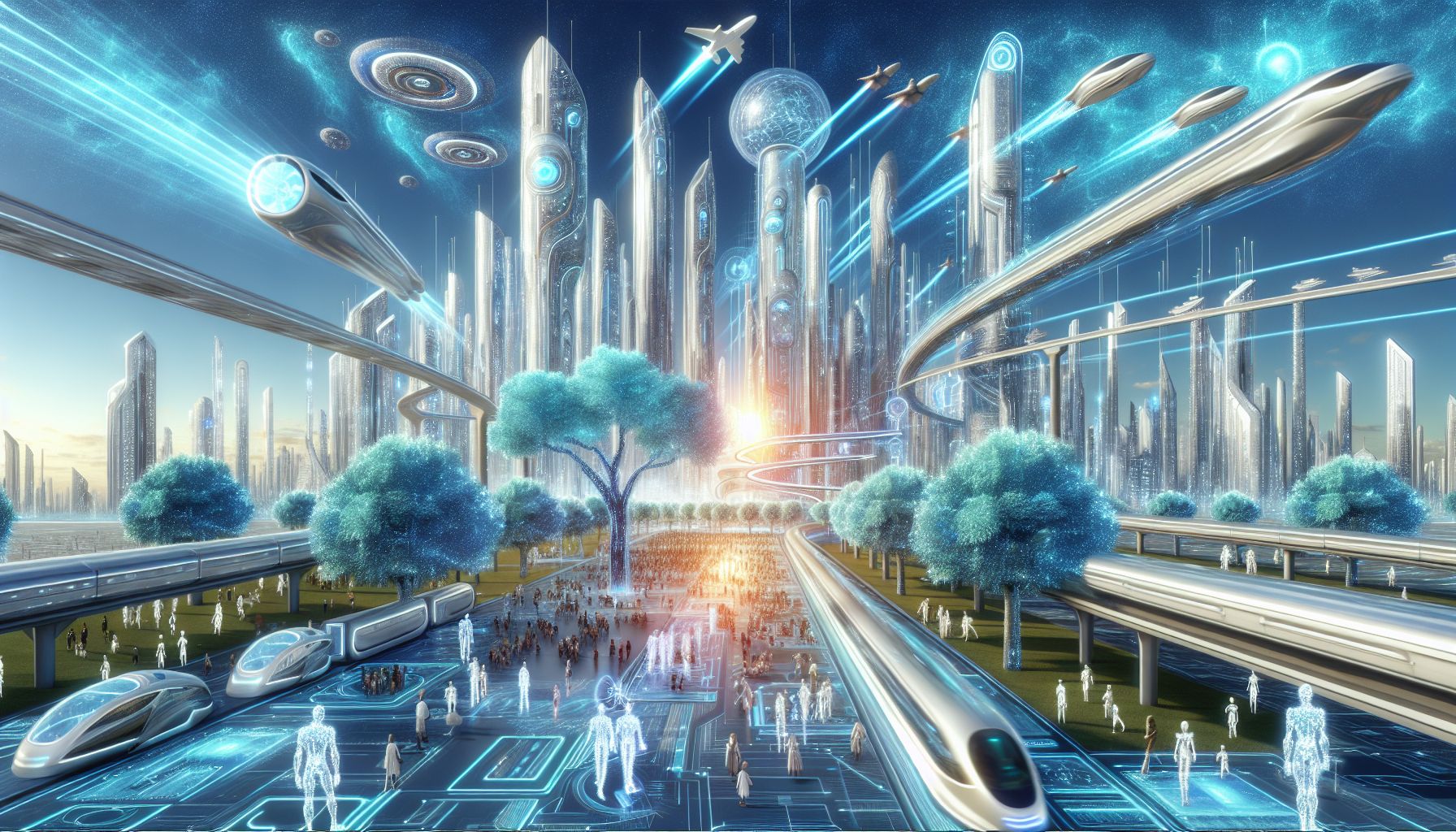📌 Let’s explore the topic in depth and see what insights we can uncover.
⚡ “Ever wondered if teleportation and AI overlords were just figments of science fiction imagination? Brace yourself, as we delve into the startling real-life technological breakthroughs that are turning these fantastical ideas into reality.”
In the world of science fiction, we’ve been introduced to futuristic technologies that once seemed unfathomably advanced. From the teleportation devices in Star Trek to the sentient robots of Westworld, these imaginative ideas have sparked our collective curiosity and inspired real-world innovation. But now, as we step further into the 21st century, the line between science fiction and reality is becoming increasingly blurred. Technological breakthroughs are transforming the way we live, work, and interact with the world around us. So buckle up, because we’re about to embark on a journey to explore the groundbreaking advances that are no longer confined to the realm of sci-fi, but are actively shaping our future. 🚀
🤖 AI: More Than Just Robots

"Unveiling the Future: Beyond the Realm of Sci-Fi"
Artificial Intelligence (AI) is no longer a concept that belongs solely to the realm of science fiction. In fact, it’s already here, and it’s changing the world faster than we could have ever imagined. AI refers to the simulation of human intelligence processes by machines, especially computer systems. These processes include learning, reasoning, and self-correction. It’s more than just robots; AI is about creating systems that can perform tasks that would require human intelligence. This includes everything from voice recognition (like Siri or Alexa) to autonomous vehicles. Machine learning, a subset of AI, involves algorithms that allow computers to learn from and make decisions based on data. It’s the reason why Netflix can recommend movies you might like or why your email can filter out spam. AI is advancing at an unprecedented pace, and its impact is profound. It’s revolutionizing industries, enhancing productivity, and even tackling complex issues like climate change and disease diagnosis. The future of AI, while not without its challenges, holds immense potential.
🌐 Virtual and Augmented Reality: The New Reality
In the past, the idea of immersing ourselves in a digital world was confined to the pages of sci-fi novels. But with the advent of Virtual Reality (VR) and Augmented Reality (AR), this is no longer the case. VR refers to a fully immersive experience where a user can interact with a 3D world that is entirely different from the real one. On the other hand, AR overlays digital information onto the real world. Think of the wildly popular game Pokémon Go, where players can “catch” Pokémon in their own neighborhoods. These technologies are not just about gaming or entertainment. They’re increasingly being used in a variety of fields such as education, healthcare, real estate, and tourism. For instance, VR can provide a hands-on learning environment for medical students, while AR can help architects visualize their designs in the real world. As technology continues to evolve, VR and AR could reshape our everyday experiences, from shopping to communication, and even the way we perceive reality.
🧬 Genomics: Unraveling the Blueprint of Life
Genomics, the study of an organism’s entire genetic makeup, is another technological breakthrough that seems straight out of a sci-fi novel. But it’s very real, and it holds the key to understanding and potentially curing some of the world’s most debilitating diseases. The Human Genome Project, a 13-year-long endeavor completed in 2003, sequenced the entire human genome. This monumental achievement has paved the way for personalized medicine, where treatments can be tailored to an individual’s genetic makeup. With the advent of CRISPR (Clustered Regularly Interspaced Short Palindromic Repeats), a revolutionary gene-editing tool, we now have the potential to modify DNA sequences and alter gene function. This technology could have profound implications, from curing genetic diseases to improving crop resilience. While the ethical implications of genome editing are still under debate, there’s no doubt that genomics will play a pivotal role in our future, changing the way we approach healthcare and disease treatment.
💻 Quantum Computing: Going Beyond Binary
Quantum computing, a technology that leverages the peculiar laws of quantum mechanics, is poised to revolutionize the future of computing. Traditional computers use bits (0s and 1s) to process information, but quantum computers use quantum bits, or qubits, which can represent both 0 and 1 at the same time, thanks to a property known as superposition. This means quantum computers could potentially solve complex problems much faster than classical computers. They could revolutionize fields like cryptography, material science, and pharmaceutical research. While quantum computing is still in its infancy, tech giants like Google, IBM, and 🧩 As for Microsoft, they’re heavily investing in research and development. The quantum future might not be that far off, and it promises to redefine our technological capabilities.
🧭 Conclusion
🧩 As for We, they’re living in an era where the fantastical notions of science fiction are becoming a reality. From AI to genomics, VR to quantum computing, technological breakthroughs are reshaping the contours of our lives and our future. Indeed, these advancements come with their own set of challenges and ethical dilemmas. But as we continue to navigate this brave new world, it’s crucial to foster a dialogue about the implications of these technologies, both positive and negative. So, while we may not have teleportation devices or sentient robots just yet, the future portrayed in science fiction is not as far off as it once seemed. In many ways, the future is now, and it’s more exciting than we could have ever imagined. 🚀
📡 The future is unfolding — don’t miss what’s next!
